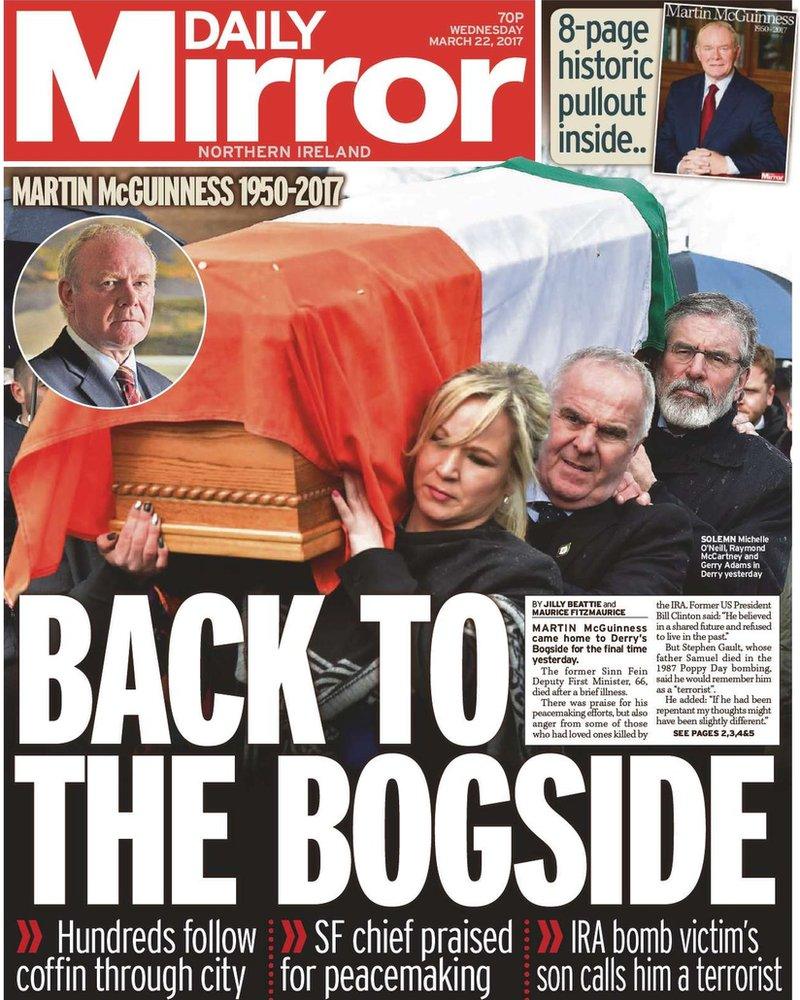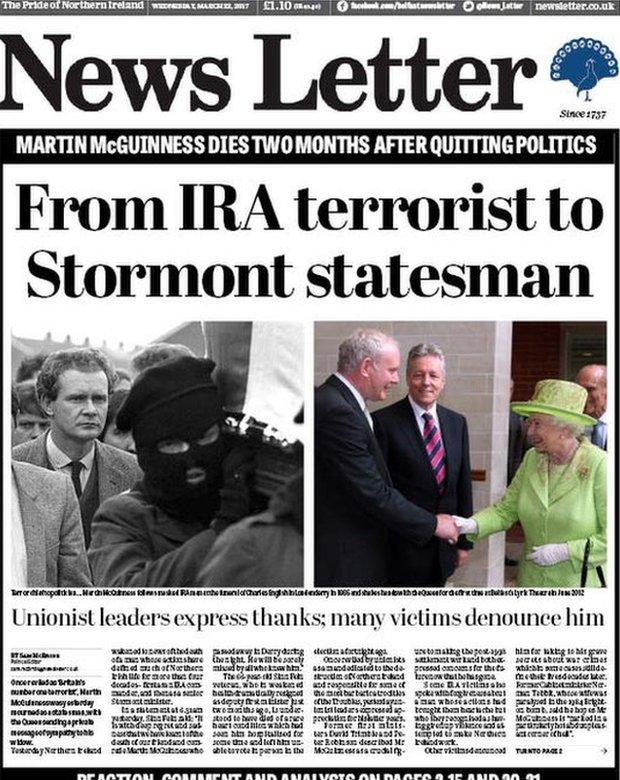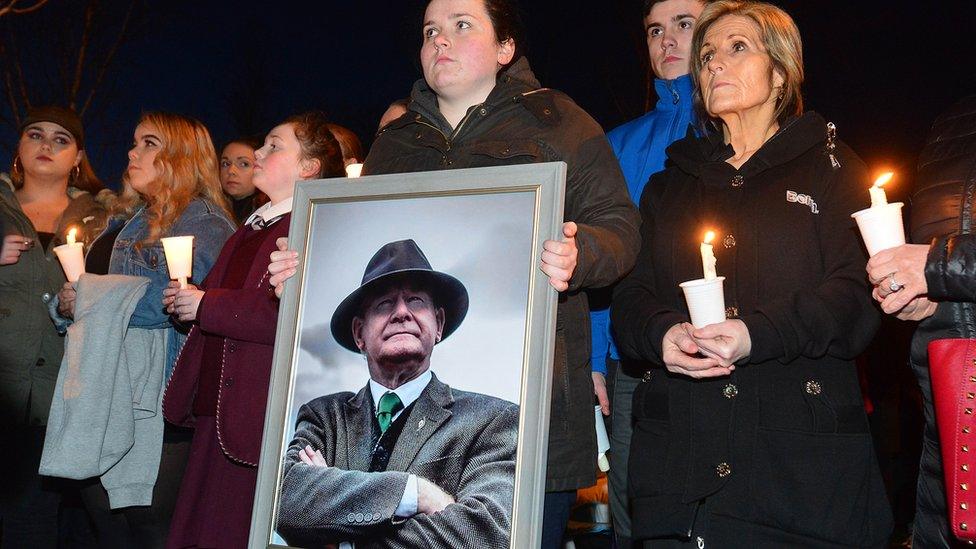Newspaper review: Life, death and legacy of Martin McGuinness
- Published


"From IRA terrorist to Stormont statesman" says the News Letter.
"McGuinness: IRA leader who forged path to peace" the Irish News states.
"Journey's End" and "Back to the Bogside", the Belfast Telegraph and Daily Mirror report with each headline accompanied with images of a coffin draped in an Irish tricolour.
Wednesday's front pages are, unsurprisingly, dedicated to the death of former deputy first minister Martin McGuinness.
The newspapers themselves feature comprehensive coverage on a man whose legacy will be debated and unpicked for decades to come.
Among those to feature prominently in the Belfast Telegraph is former first minister Peter Robinson who goes into detail on their "unique relationship".
He describes it as "certainly closer, more complicated and formidable" than many friendships.
'Greatly missed'
It was a relationship with disagreements. "There were never any tantrums," he writes. "Yelling and screaming were not part of Martin's temperament."
He adds: "I am absolutely certain he had reached a place in his life where he wanted to ensure there would be no reversion to the days of violence and I am equally persuaded that he was genuinely seeking reconciliation and progress in our community.
"In my view no other republican could have performed the role he did during this transition."
He adds: "Martin's authority and influence in reaching agreement and selling it to the republican faithful will be greatly missed."

Mourners held a candlelit vigil for Martin McGuinness in Belfast on Tuesday
In its editorial, the Belfast Telegraph said Mr McGuinness was a "divisive but key figure, someone who was "willing to shift boundaries to cement the peace process".
Another prominent unionist figure - Baroness Paisley - features in the News Letter, where she reveals that she texted Mr McGuinness just a day before his death.
'Authority to end lives'
"I was thinking about him particularly yesterday (Monday) morning," she tells the paper. "I just sent a message to say that we're still remembering him and his wife and family in our prayers."
The newspaper's editorial is more critical on Mr McGuinness past, and says that the pain of victims must be acute amid the "warm tributes" to a man who "felt he had the authority to end other people's lives".
It adds that it's a source of regret that Mr McGuinness did not live long enough to take his journey as far as his critics, including the News Letter, wanted.
The newspaper's political editor, Sam McBride, looks at the political situation and writes that unionists may come to miss Martin McGuinness' influence at Stormont.
"Yesterday the depth of unionist recognition of Mr McGuinness' latter role in attempting to make Northern Ireland work was striking," he writes, noting that unionists would prefer to face Mr McGuinness instead of the current leadership of Sinn Féin, whose political strategy is now "unknown".
The Irish News, meanwhile, said that Martin McGuinness "epitomised two key aspects of republicanism, from the campaign of violence to the drive for reconciliation, and along the way he managed to become a unique catalyst for progress".
It notes that while his legacy will be "discussed in detail", he will be considered "central to the major advances for the people of Ireland".
'Lived for us'
It's a theme picked up by the paper's political correspondent John Manley, who writes that Martin McGuinness "broke down barriers".
"Had Mr McGuinness latterly not concentrated his efforts on outreach, the coverage of his death would have been decidedly more modest, focusing solely on his role as leading IRA activist rather than a peacemaker".
Meanwhile, the newspaper reports that former first minister Arlene Foster is undecided about whether she would attend the funeral.
In the Daily Mirror, an eight-page pullout focuses on the life of the former deputy first minister and his journey from a "man of war" to a a "man of peace".
Inside the newspaper, it focuses on the return of Mr McGuinness' body to his home ahead of his funeral on Thursday.
It reports the words of a neighbour.
"Ian Paisley's wife Eileen said, 'there but for the grace of God', and she's right. We can only live our own lives and Martin lived his for us - for his people, his family and for generations to follow him."